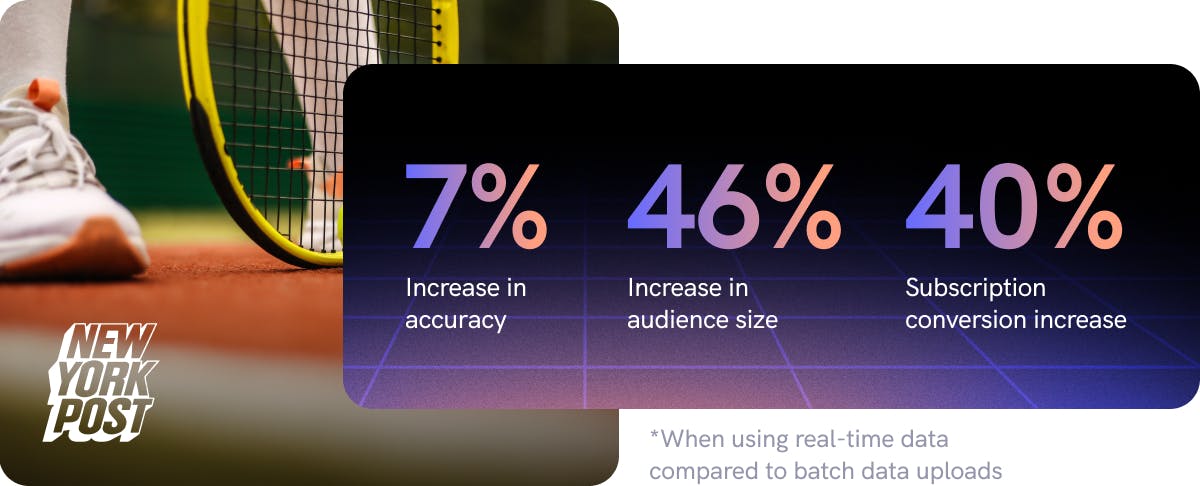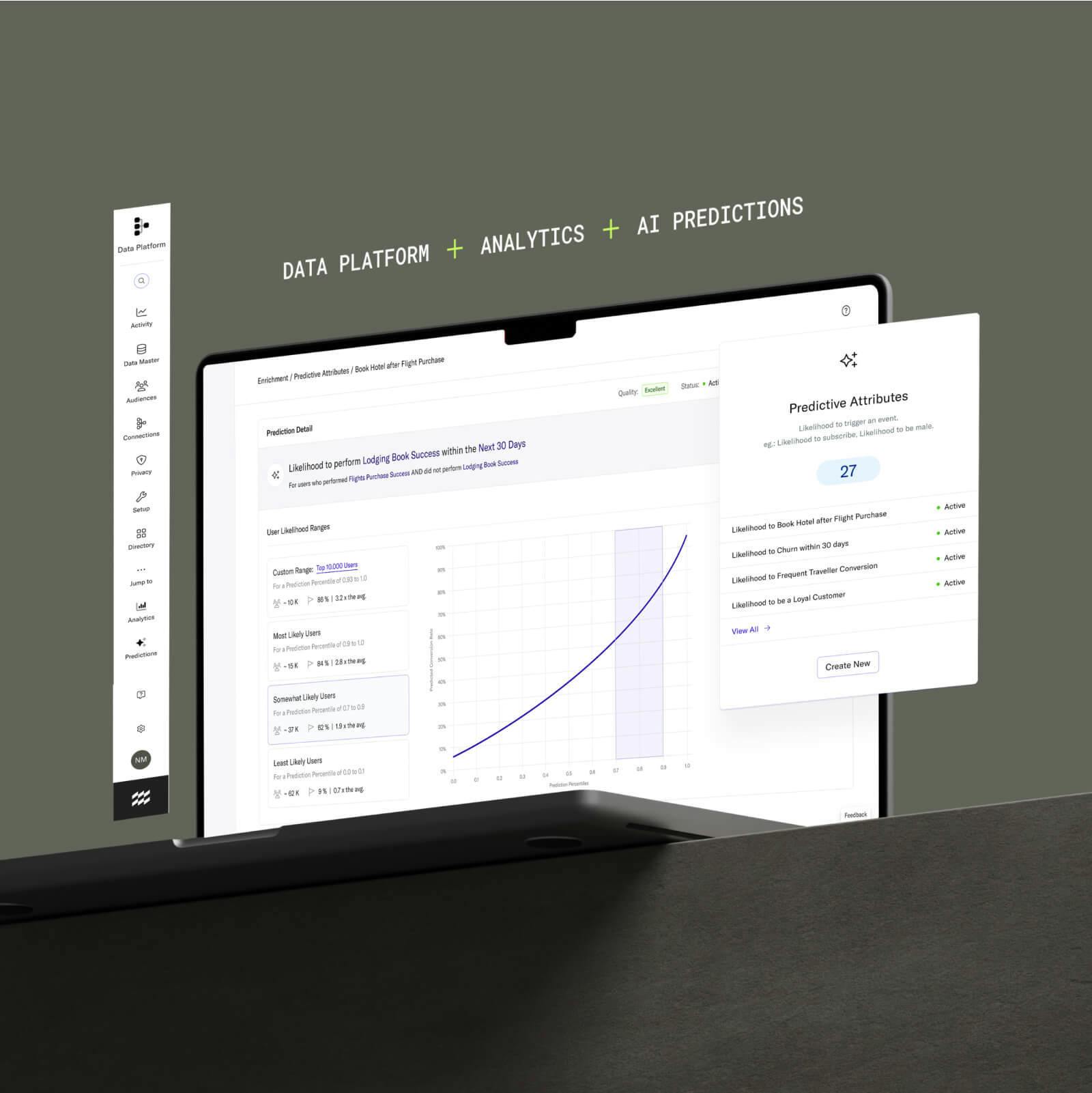How the New York Post tripled campaign conversions for its premium sports membership
Learn how the New York Post leveraged AI to improve campaign targeting and drive subscriptions.

In September of 2021, the New York Post—which boasts an expansive digital audience of nearly 94 million unique visitors every month—launched Post Sports+, a premium membership experience.
To drive Sports+ subscriptions, the team sought to display flyout ads to encourage visitors to sign-up for the premium membership. But with such a diverse readership, the team knew that not all of their users would be interested in Sports+, and that displaying offers to their entire audience would result in irrelevant customer experiences and wasted budget.
To fine-tune their targeting, they needed a way to leverage real-time signals and behavioral data to identify which users would be most likely to subscribe.
Challenge
With 93.6 million unique monthly users, the team couldn’t realistically rely on manual audience segmentation. Drawing exclusively on the behaviors and characteristics the team thought might correlate with an affinity for the Sports+ membership would be slow, biased, and hard to scale.
Doing so had the potential to significantly harm the overall experience for users by annoying users with messaging that wasn’t relevant to them. Relying on historical models would also limit the team to targeting existing known users, when they needed to serve the flyout ad to the right anonymous and first-time users, too. Furthermore, serving ads to users unlikely to convert would be a waste of budget.
Instead, they needed a predictive solution that could help them:
- Analyze billions of behavioral activities
- Identify the activities most likely to correlate with Sports+ conversion
- Promote the flyout not only to recurring, known users who perform that behavior, but also to first-time and anonymous users by pulling in real-time data
Increasing efficiency with AI
The New York Post partnered with Cortex, mParticle’s machine-learning (ML) engine, to provide personalized experiences based on evergreen user predictions, built on a real-time user data stream.
They used the Cortex Decisioning SDK to pipe real-time behavioral data—including in-session behaviors like clicks and pageviews—into Cortex.
The Decisioning SDK looked at various possible user decision outcomes to calculate the likelihood that each individual user would subscribe to Sports+, as well as the impact that seeing the flyout would have on that likelihood. It also provided an API to obtain real-time decisions on user behavior.
With that prediction in hand, the team could decide, on the individual user level, whether (and when) to show the flyout ad.

Once they turned to machine-learning (ML) with Cortex, they also needed a way to measure and visualize how effective the new ML pipeline was over a traditional metered approach.
For the A/B test, the team also provided batch data to Cortex through daily static files and employed a rule-based approach, targeting users for conversions based on how often they read “sports” content on New York Post digital properties.
Results
The New York Post Sports+ flyout campaign ultimately showed that the ML-powered approach far outperformed rule-based engines for predicting who would convert to a Sports+ subscription, generating a 3x increase in campaign conversions versus the metered approach they tested.
In addition, real-time features and real-time ML resulted in a huge increase in conversions over batch techniques based only on historical data. The team saw a 40% increase in Sports+ campaign conversions with real-time data over batch data alone.

Conclusion
The New York Post clearly demonstrated the power of real-time machine learning techniques over rule-based engines and batch techniques. With the Sports+ flyout campaign a success, the team were ready to harness the power of Cortex to help increase subscription conversions across the board.


